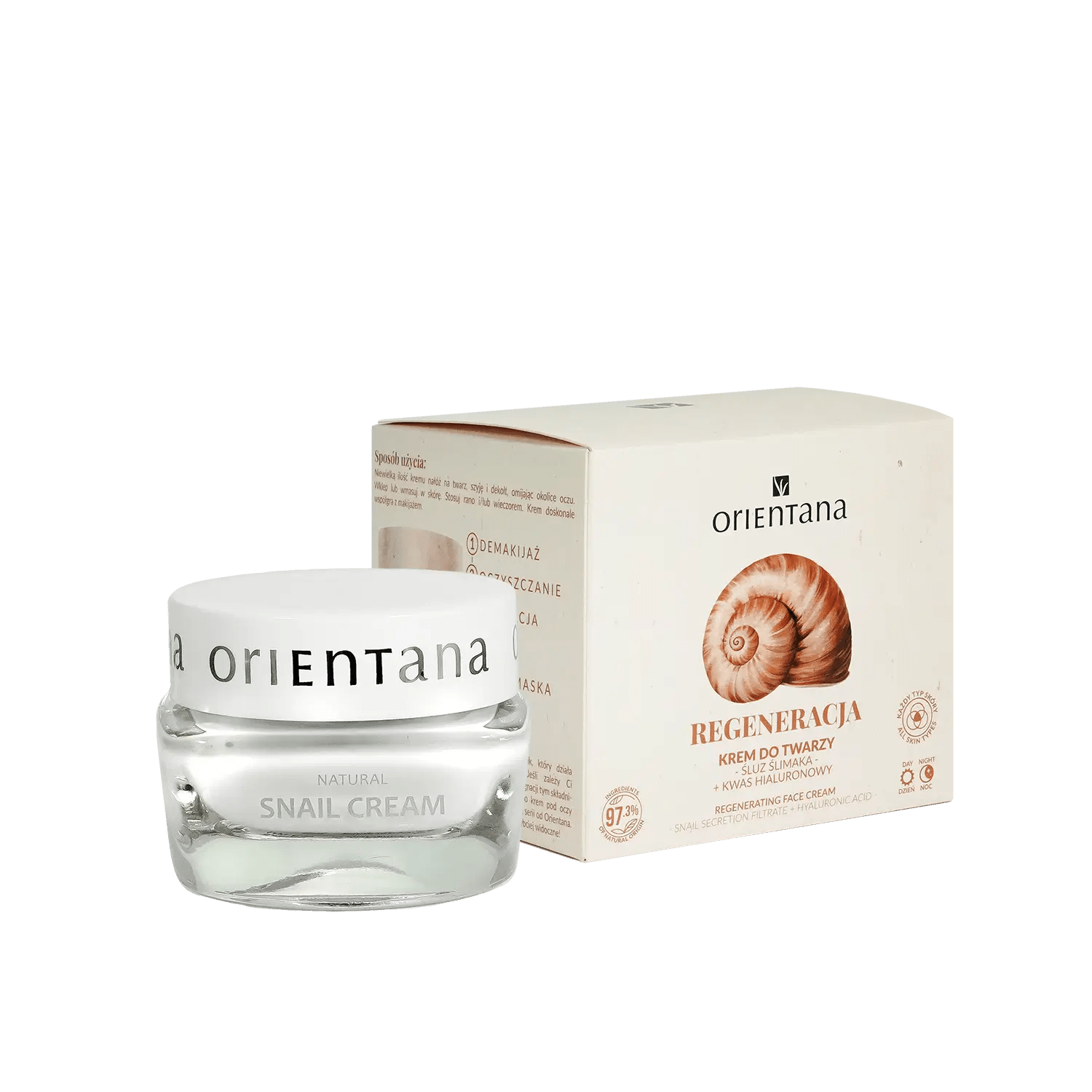BLOG ENTRY MŚKIE KOSMET
In recent years, we've seen a significant increase in interest in skincare among men. More and more men are paying attention not only to the effects of cosmetics but also to their ingredients, origins, and impact on skin health and the environment. This trend aligns with a broader trend of conscious consumption, which prioritizes quality, transparency, and brand responsibility. Men are more likely to choose products with simple, transparent formulas, free from unnecessary chemicals and harsh substances. In this context, the concept of natural cosmetics is increasingly emerging, meaning those based on ingredients of plant, mineral, or biotechnological origin, free from synthetic additives like silicones, PEGs, or parabens. In men's skincare, naturalness doesn't mean abandoning the benefits—quite the opposite—it means effectiveness based on synergy with skin biology, without side effects or excess unnecessary ingredients.
What is men's skin like?
Men's skin differs from women's not only in appearance but also in structure, thickness, and physiological functions. These differences result primarily from the effects of sex hormones, primarily testosterone, which influences the structure and function of skin from puberty onward. Understanding the specifics of men's skin allows for more precise care—both daily and specialized.
Thicker and more resistant structure
Men's skin is, on average, 20–25% thicker than women's skin, thanks to higher levels of collagen and a denser network of elastin fibers. This makes it more resistant to mechanical damage and external factors, and also ages more slowly. Despite these advantages, however, it can pose skincare challenges, as a thicker stratum corneum often translates to a greater tendency towards keratinization and roughness.
Increased sebum production
Under the influence of androgens, men's sebaceous glands become more active. This results in significantly higher sebum secretion, which translates into a greater tendency for skin to become oily, shiny, and develop imperfections—particularly in the T-zone (forehead, nose, and chin). Although sebaceous secretion serves a protective function, excess sebum can lead to clogged pores and inflammation.
Tendency to irritation after shaving
Regular shaving is one of the main causes of micro-damage and hyperreactivity of facial skin in men. Daily contact between the blade and the epidermis can lead to abrasions, redness, burning, and dryness, and in the long term, to a disruption of the hydrolipid barrier. Therefore, aftershave care should include soothing, regenerating, and moisturizing products, preferably free of alcohol and irritants.
Less hydration, more dehydration
Despite the intense activity of the sebaceous glands, men's skin is often dehydrated. A thicker stratum corneum and improper care (or lack thereof) can lead to disruptions in the epidermis' water balance. The skin loses elasticity, becomes rough, and more susceptible to irritation. Therefore, daily use of moisturizing creams is crucial, preferably with a light consistency that won't clog pores.
Delayed but rapid skin aging
The aging process in men's skin begins later than in women's, but it progresses more quickly and intensely. This is due, among other things, to the higher collagen content at a younger age and the dermis' lower tendency to dehydrate. However, when collagen begins to decline—usually after the age of 35—a rapid loss of firmness occurs, leading to the formation of deep wrinkles and pronounced furrows. Hence, anti-aging prevention is playing an increasingly important role in men's skincare.
Why is it worth choosing natural cosmetics?
Choosing natural cosmetics isn't just a fashion trend, but above all, a conscious decision that has a real impact on skin health and the environment. Men are increasingly choosing products with simple ingredients, free from synthetic additives. What's making natural skincare so popular?
No synthetic additives – less risk, more comfort
One of the most important reasons to choose natural cosmetics is the absence of harsh ingredients like SLS (sodium lauryl sulfate), parabens, silicones, and artificial colors. These ingredients can be irritating, drying, and, with prolonged use, disrupt the skin's microbiome balance. Natural alternatives, such as gentle plant-based cleansers and emollients from oils and butters, effectively nourish without causing irritation. This is a logical choice for men who value effectiveness without unnecessary chemicals.
Better skin tolerance – especially sensitive skin
Men's skin, although typically thicker, is increasingly prone to hypersensitivity – especially after shaving, during periods of stress, or seasonal changes. Natural cosmetics are based on ingredients biocompatible with human skin, such as panthenol, jojoba oil, and Korean ginseng or bamboo extract. This makes them better tolerated and safe to use even on skin prone to redness, irritation, and tightness. The absence of harsh preservatives and artificial fragrances further minimizes the risk of allergic reactions.
Ecological and ethical production – a socially responsible choice
By choosing natural cosmetics, men are becoming part of a larger pro-ecological movement. Such products are typically made with respect for sustainable development principles: using raw materials from organic farming, respecting animal welfare, and minimizing production waste. Today, men are consciously avoiding petroleum-derived ingredients such as paraffin and mineral oil. By choosing brands that prioritize zero-waste, cruelty-free packaging, and ethical supply chains, consumers are truly supporting changes in the cosmetics industry. Natural skincare is not only about caring for yourself, but also for the planet.
Natural men's care step by step
Natural skincare doesn't have to be complicated. The key is consistency, consciously selecting ingredients, and matching products to your skin's needs and lifestyle. Below, we present the basic steps in men's skincare, with an emphasis on natural solutions that support skin without unnecessary chemicals.
Cleansing – without aggressive detergents
Cleansing is the first and most important step in any skincare routine – both morning and evening. For men, whose skin is thicker and produces more sebum, effective yet gentle cleansing is crucial. Natural gels and foams contain gentle cleansing agents, such as those based on coconut (coco-glucoside, sodium cocoyl glutamate), which remove impurities and excess sebum without damaging the hydrolipid barrier. It's worth looking for products enriched with purple rice or bamboo extract – they cleanse while also having soothing and anti-inflammatory properties.
Moisturizing and anti-aging – light but effective
Moisturization is the foundation of healthy, elastic, and resilient skin. For men, lightweight creams or emulsions based on natural ingredients are best: plant oils (e.g., camellia japonica, jojoba, almond), butters (e.g., shea), and extracts from adaptogenic plants such as ginseng, centella asiatica, or tulsi. These creams provide the skin with valuable lipids and moisturizers without weighing it down or clogging pores.
Hair and scalp – not only aesthetics, but also health
Natural hair care for men should focus not only on the visual effect but primarily on the condition of the scalp. Choosing shampoos without SLS and artificial fragrances provides gentle cleansing without the risk of dryness or dandruff. Active ingredients such as rosemary, neem, amla, and centella asiatica extracts stimulate microcirculation and support healthy hair growth. Plant-based lotions and silicone-free conditioners strengthen hair follicles, prevent hair loss, and improve the overall condition of hair. This is especially important for men struggling with the first signs of androgenetic alopecia.
Ingredients worth paying attention to in men's care
Modern men's skincare is no longer limited to basic hygiene and is increasingly incorporating active ingredients that truly impact skin condition. Men struggle with specific issues – oily skin, razor burn, dryness, and signs of aging. Natural substances with powerful nourishing and regenerative properties are the answer. Neem oil , known for its powerful antibacterial and anti-inflammatory properties, is also worth considering. It's excellent for acne, soothing inflammation and reducing skin lesions. Additionally, it contains fatty acids and vitamin E, which support regenerative processes and epidermal renewal. Panthenol , or provitamin B5, also plays a significant role in men's skincare. This ingredient has a strong soothing effect, calms redness, reduces burning sensations, and supports epidermal regeneration. As a result, skin becomes smooth, soft, and less prone to irritation after use. Adaptogens and natural medicine plants are also gaining popularity in skincare, as they help the skin cope with environmental stress and everyday aggressors. Ginseng stimulates microcirculation, improves skin tone, and energizes. It also has antioxidant properties, neutralizing free radicals, protecting the skin from premature aging. Another noteworthy plant is centella asiatica , known for its regenerative properties. It accelerates the healing of minor wounds and irritations, strengthens the hydrolipid barrier, and soothes inflammation. It's an ideal ingredient for sensitive skin and skin prone to micro-damage, such as after shaving. Finally, bamboo is worth mentioning, as its silica content strengthens the skin's structure, improving its firmness and elasticity. It has a slightly astringent and mattifying effect, which is especially important for oily skin. It also supports detoxification, cleansing the skin of toxins and excess sebum.
What to avoid in cosmetics?
Conscious skincare involves not only choosing active ingredients that have a beneficial effect on the skin, but also avoiding those that can harm it – both directly and after long-term use. It's important to read labels and know what to avoid in cosmetics, especially if you care about the health of your skin and the environment. Among the substances to avoid are PEGs (polyethylene glycols), silicones, parabens, and denatured alcohol (Alcohol Denat.). PEGs can disrupt the skin's hydrolipid barrier and increase its permeability to undesirable substances. Silicones, while often improving the texture of cosmetics and providing a smooth feel, create an impenetrable film on the skin, which can clog pores and impede skin breathing. Parabens are preservatives suspected of having estrogenic and hormonal effects. Denatured alcohol, on the other hand, has a strong drying and irritating effect, especially in products used daily – it can lead to irritation, tightness, and flaking. Microplastics are also worth noting – tiny plastic particles that end up not only on the skin but also in the aquatic environment, where they negatively impact ecosystems. They appear in INCI under names such as "Polyethylene," "Nylon-12," "Acrylates Copolymer," "Polymethyl Methacrylate," and others. Their presence in cosmetics is not only unnecessary but also burdensome for both the skin and nature. It's also important to avoid any substances that burden the skin, such as heavy mineral oils (e.g., paraffin, petrolatum) or artificial emulsifiers, which can disrupt the skin's natural balance, leading to oiliness, blackheads, and hypersensitivity. Conscious skincare isn't a fad, but a necessity – both for healthy skin and the environment. By choosing products with pure, natural ingredients and avoiding harmful additives, we support not only our skin but also the future of the planet.
Who are natural cosmetics for?
Natural cosmetics are gaining a growing following – and for good reason. Their formulas are simpler, more skin- and environmentally friendly, and yet incredibly effective. For many, they are not just an aesthetic or ideological choice, but a necessity – especially for skin problems or hypersensitivity to synthetic additives. Men with sensitive, acne-prone, or atopic skin deserve special attention. This type of skin reacts very easily with irritation, redness, or a tight feeling – especially after shaving or contact with inappropriate cosmetics. Natural formulas, free of harsh detergents, alcohols, and artificial fragrances, are gentle, supporting skin balance and strengthening its protective barrier. Plant extracts, oils, and adaptogens help reduce inflammation and accelerate epidermal regeneration, which is invaluable for problematic skin. Natural cosmetics are also an ideal solution for those struggling with dandruff, an itchy scalp, or frequent irritations. Plant-derived ingredients such as aloe, neem, tea tree oil, and centella asiatica extracts exhibit anti-inflammatory, antibacterial, and soothing properties. These ingredients restore comfort to the scalp, and hair becomes stronger and healthier. It's worth noting that many natural scalp care products are free from SLS and silicones, which can worsen skin condition and weaken hair follicles. Natural care is also suitable for anyone who values simple, clean ingredients and effective results without unnecessary chemicals. Minimalist formulas based on carefully selected, natural active ingredients can be just as—and often more—effective than drugstore cosmetics full of fillers. This is a choice for those who want to know what they're applying to their skin and be sure that the product is working in harmony with its needs.





